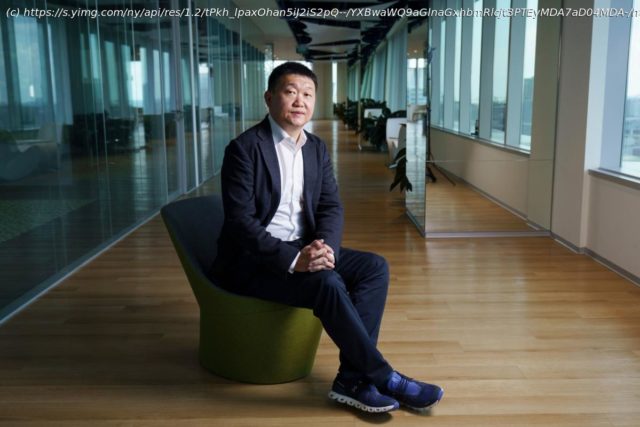(Bloomberg) — Just over a year ago, Forrest Li was laid up in bed with Covid, fretting about the future of his company, Sea Ltd. So he propped himself up on a pillow to hammer out the latest in a series of memos that would change the course of his business — and perhaps the tech industry.Most Read from BloombergTurkey Latest: Erdogan Says Unclear If Vote Will Go to RunoffRemote Work Comes With Daytime Drug and Drinking HabitsEarly Vote Count Shows Erdogan Below 50% in Turkish ElectionTrump Chan
Sea’s Path to Profit Paved With Layoffs, Single-Ply Toilet Paper
Just over a year ago, Forrest Li was laid up in bed with Covid, fretting about the future of his company, Sea Ltd. So he propped himself up on a pillow to hammer out the latest in a series of memos that would change the course of his business — and perhaps the tech industry.
Most Read from Bloomberg
Turkey Latest: Erdogan Says Unclear If Vote Will Go to Runoff
Remote Work Comes With Daytime Drug and Drinking Habits
Early Vote Count Shows Erdogan Below 50% in Turkish Election
Trump Changed GOP Rules to Make Winning the Nomination Even Easier — for Trump
Sea had been a stock market phenom, racing to a market capitalization of more than $200 billion despite huge losses, but the world had changed. Investors had turned against money-losing tech companies. So Sea had to change with it, Li wrote. With a burning fever and nagging cough, he told his leadership team it was time to focus on profit and exit India.
That memo kicked off a sweeping overhaul of Sea over the next few months. The company laid off roughly more than 7,500 employees, or about 10% of its workforce, though Sea declined to disclose the actual numbers. It froze pay. Li and his leadership team gave up their salaries altogether.
Business-class flights were banned; everyone would fly economy, no matter how far. Daily meal expenses were capped at $30, hotels at $150 a night. Snacks disappeared from offices. Sea replaced the local luxury tea brand TWG with Lipton. In at least some restrooms, two-ply toilet paper gave way to one-ply.
“We cared about every single dollar, every single cent,” Li said at his office in Singapore, his first interview in more than two years. “You can have a big dream and a big ambition, but what if you cannot survive? You always have this kind of noise back in your mind saying we may be running out of money.”
Li’s shock treatment paid off. In March, Sea reported the first quarterly profit in its 14-year history, $427 million in GAAP-sanctioned net income. Its stock soared 22%. Last week, it said it would hand out 5% raises to most staff. Sea has now more than doubled its market value since November.
Like so many tech startups of its generation, Sea had bled red ink for years. In fact, it lost more than $8 billion since its founding to pay for growth in its e-commerce, games and finance operations. For now at least, Sea is setting a different kind of example: It’s demonstrating that if your underlying business is sound and substantial, you can pull back on subsidies and expansions to break even.
That’s proving a challenge for rivals. Among Sea’s regional competitors, Singapore’s Grab Holdings Ltd.






